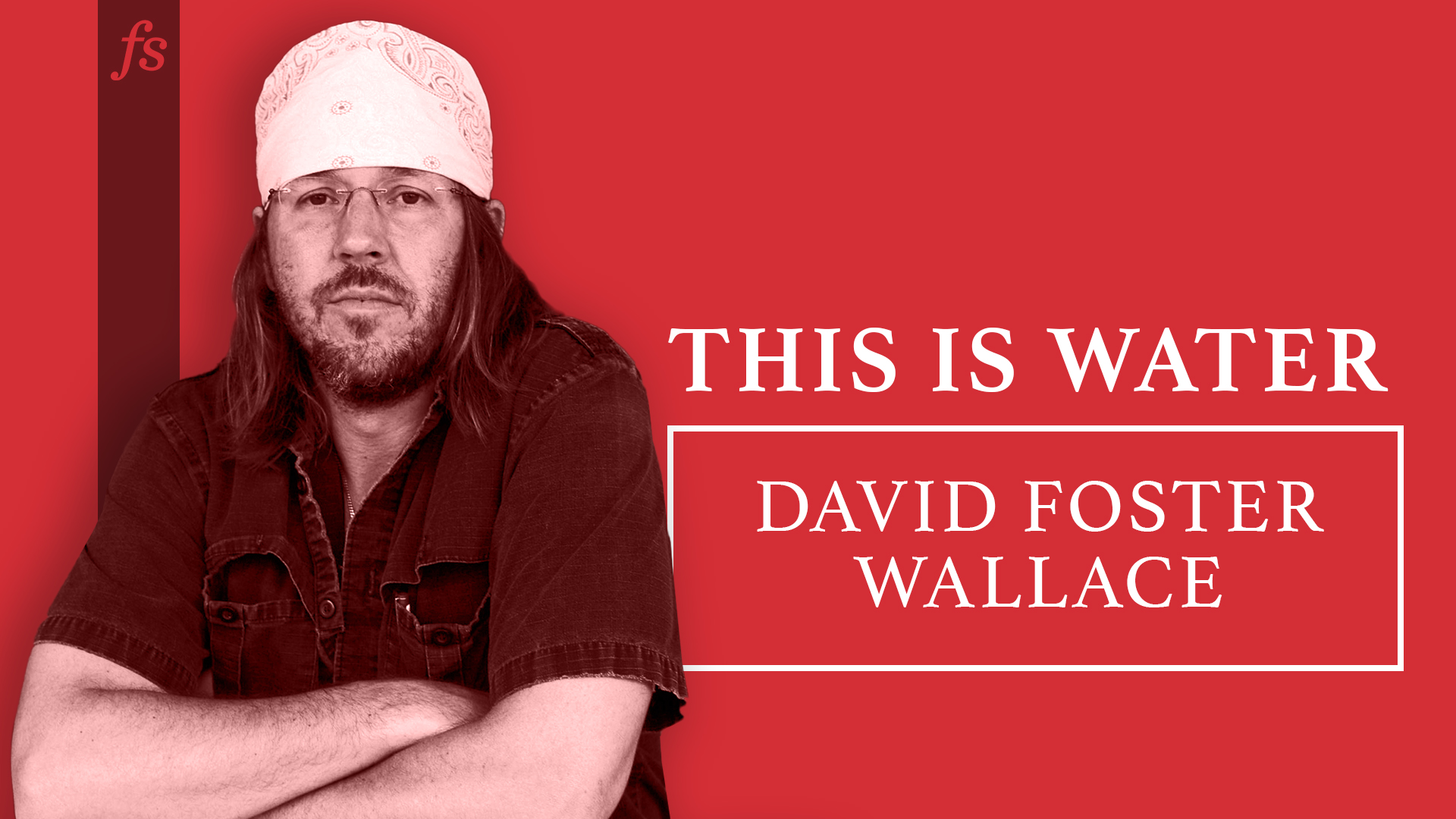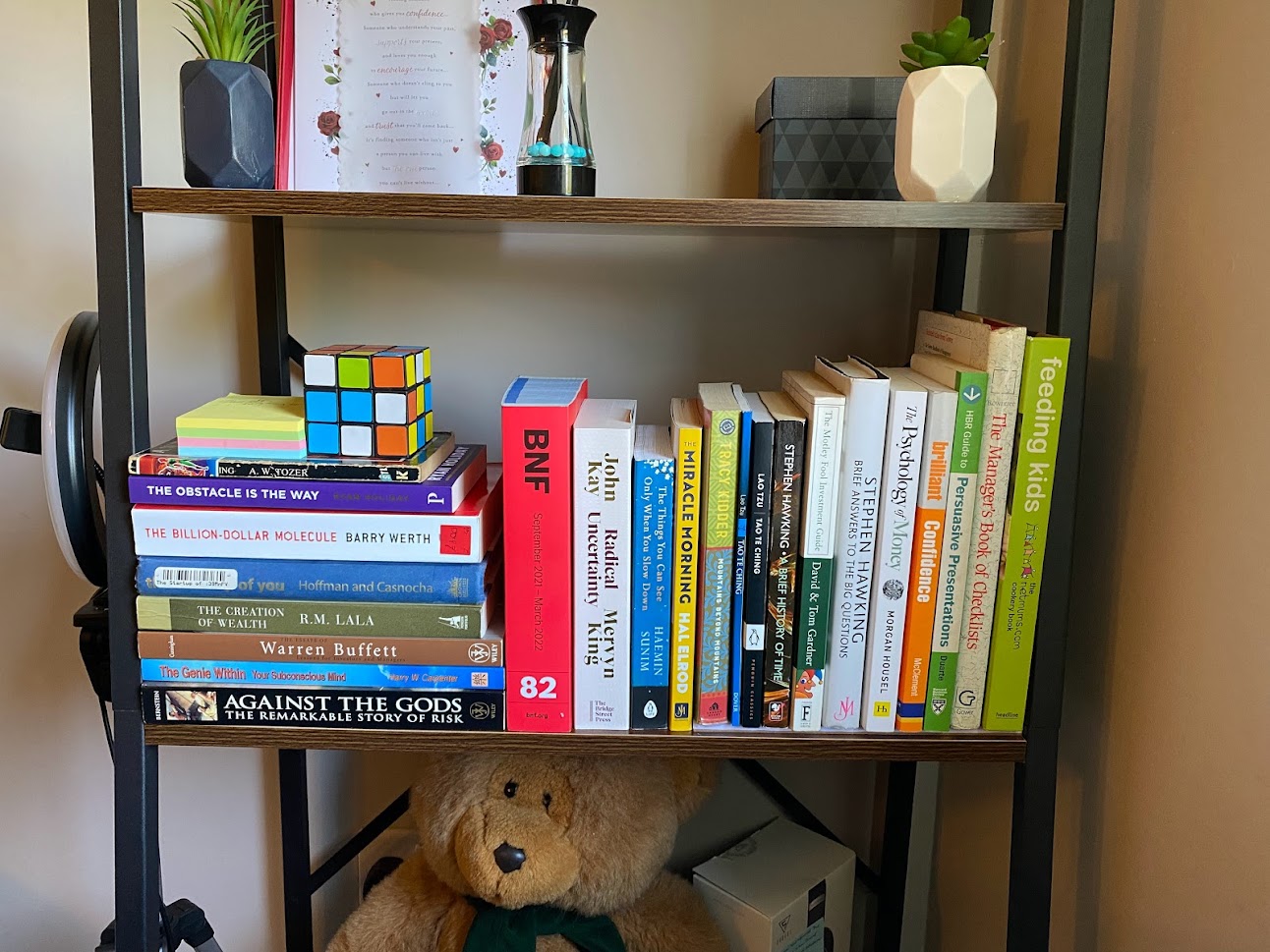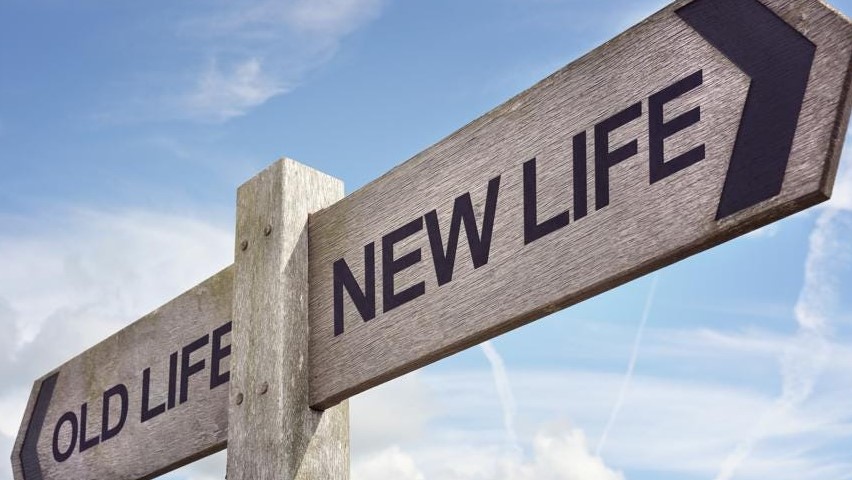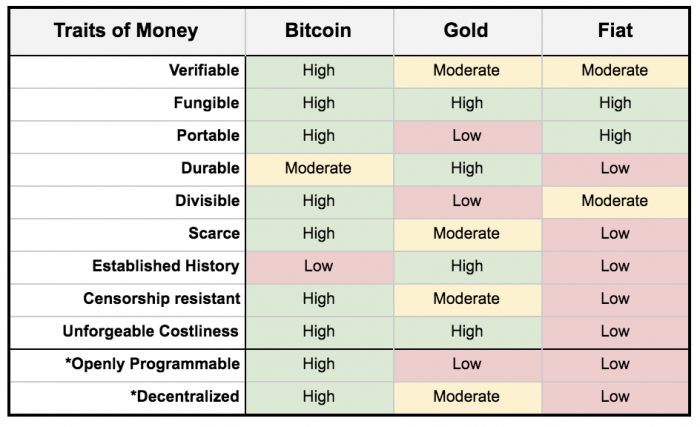Last week, I introduced David Foster Wallace and his ideas to us. Particularly, I promised to share how those ideas can help us have a better career, life and relationship.
The overarching idea that came out of the speech was that for a lot of us, we act based on our default thinking state. We do not take the extra step first to be aware of our thinking state, secondly to choose how we think and lastly to choose what we think about. We just think whatever comes to our mind.
Here’s a good example given by Wallace:
Let’s say it’s an average adult day, and you get up in the morning, go to your challenging, white-collar and you work hard for eight or ten hours, and at the end of the day you’re tired and somewhat stressed and all you want is to go home and have a good supper and maybe unwind for an hour, and then hit the sack early because, of course, you have to get up the next day and do it all again. But then you remember there’s no food at home. You haven’t had time to shop this week because of your challenging job, and so now after work, you have to get in your car and drive to the supermarket. It’s the end of the work day and the track is apt to be: very bad. So getting to the store takes way longer than it should, and when you finally get there, the supermarket is very crowded, because of course it’s the time of day when all the other people with jobs also try to squeeze in some grocery shopping. And the store is hideously lit and infused with soul-killing muzak or corporate pop and it’s pretty much the last place you want to be but you can’t just get in and quickly out; you have to wander all over the huge, over-lit store’s confusing aisles to find the stuff you want and you have to manoeuvre your junky cart through all these other tired, hurried people with carts. Eventually, you get all your supper supplies, except now it turns out there aren’t enough check-out lanes open even though it’s the end-of-the-day rush. So the checkout line is incredibly long, which is stupid and infuriating. But you can’t take your frustration out on the frantic lady working the register, who is overworked at a job whose daily tedium and meaninglessness surpasses the imagination of any of us here at a prestigious college.
But anyway, you finally get to the checkout line front, and you pay for your food, and you get told to “Have a nice day” in a voice that is the absolute voice of death. Then you have to take your creepy, flimsy, plastic bags of groceries in your cart with the one crazy wheel that pulls maddeningly to the left, all the way out through the crowded, bumpy, lottery parking lot, and then you have to drive all the way home through slow, heavy, SUV-intensive, rush-hour trac, et cetera et cetera.
Everyone here has done this, of course. But if you are reading this and it hasn’t been your experience, soon it will be your actual life routine, day per week per month per year. Or in another variant.
It will be. And many more dreary, annoying, seemingly meaningless routines besides. But that is not the point. The point is that petty, frustrating crap like this is exactly where the work of choosing is gonna come in.
Because the trac jams and crowded aisles and long checkout lines give me time to think, and if I don’t make a
conscious decision about how to think and what to pay attention to,I’m gonna be pissed and miserable every time I have to shop. Becausemy natural default setting is the certainty that situations like this are really all about me.About MY hungriness and MY fatigue and MY desire to just get home, and it’s going to seem for all the world like everybody else is just in my way. And who are all these people in my way? And look at how repulsive most of them are, and how stupid and cow-like and dead-eyed and nonhuman they seem in the checkout line, or at how annoying and rude it is that people are talking loudly on cell phones in the middle of the line. And look at how deeply and personally unfair this is.Or, of course, if I’m in a more socially conscious liberal arts form of my default setting, I can spend time in the end-of-the-day trac being disgusted about all the huge, stupid, lane-blocking SUVs and Hummers and V-12 pickup trucks, burning their wasteful, selfish, 40-gallon tanks of gas, and I can dwell on the fact that the patriotic or religious bumper-stickers always seem to be on the biggest, most disgustingly selfish vehicles, driven by the ugliest, most inconsiderate and aggressive drivers. (This is an example of how NOT to think, though). And I can think about how our children’s children will despise us for wasting all the future’s fuel, and probably screwing up the climate, and how spoiled and stupid and selfish and disgusting we all are, and how modern consumer society just sucks, and so forth and so on.
If you read through the example you will see the frustration of typical adult life. If you are living in Lagos, you might have it even worse. Amidst this frustration is room to think and what we think at that time matters. Transcending our default thinking state is how we make our life better, our career eventful and our relationships perfect.
If I choose to think this way in a store and on the freeway, fine. Lots of us do anyway. Except thinking this way tends to be so easy and automatic that it doesn’t have to be a choice. It is my natural default setting. It’s the automatic way that I experience the boring, frustrating, crowded parts of adult life when I’m operating on the automatic, unconscious belief that I am the centre of the world and that my immediate needs and feelings are what should determine the world’s priorities.
The thing is that, of course, there are totally different ways to think about these kinds of situations. In this trac, all these vehicles stopped and idling in my way, it’s not impossible that some of these people in SUVs have been in horrible auto accidents in the past, and now find driving so terrifying that their therapist has all but ordered them to get a huge, heavy SUV so they can feel safe enough to drive. Or that the Hummer that just cut me off is maybe being driven by a father whose little child is hurt or sick in the seat next to him, and he’s trying to get this kid to the hospital, and he’s in a bigger, more legitimate hurry than I am: it is actually I who am in HIS way.
Or I can choose to force myself to consider the likelihood that everyone else in the supermarket’s checkout line is just as bored and frustrated as I am, and that some of these people probably have harder, more tedious and painful lives than I do.
Again, please don’t think that I’m giving you moral advice, or that I’m saying you are supposed to think this way, or that anyone expects you to just automatically do it. Because it’s hard. It takes will and effort, and if you are like me, some days you won’t be able to do it, or you just flat out won’t want to.
You can see things differently
But most days, if you’re aware enough to give yourself a choice, you can choose to look differently at this fat, dead-eyed, over-made-up lady who just screamed at her kid in the checkout line. Maybe she’s not usually like this. Maybe she’s been up three straight nights holding the hand of a husband who is dying of bone cancer. Or maybe this very lady is the low-wage clerk at the motor vehicle department, who just yesterday helped your spouse resolve a horrific, infuriating, red-tape problem through some small act of bureaucratic kindness. Of course, none of this is likely, but it’s also not impossible. It just depends on what you want to consider. If you’re automatically sure that you know what reality is, and you are operating on your default setting, then you, like me, probably won’t consider possibilities that aren’t annoying and miserable. But if you really learn how to pay attention, then you will know there are other options. It will actually be within your power to experience a crowded, hot, slow, consumer-hell type situation as not only meaningful but sacred, on fire with the same force that made the stars: love, fellowship, the mystical oneness of all things deep down.
Not that that mystical stuff is necessarily true. The only thing that’s capital-T True is that you get to decide how you’re gonna try to see it.
And this my friends is how we can have a better career, life and relationship.
That when you realise that you are not enjoying your work, you do not result in default thinking that your manager is against you and all your colleagues are ganged up against you. Rather, that maybe they aren’t just enjoying it as well or that they are even having it worse than you.
When your girlfriend doesn’t call you, your first imagination isn’t to assume the worst but to think about the 101 legitimate reasons that might have caused that. And that allows you to give an attentive ear when she tries to explain to you about the situation.
Or when you are stuck in that long unfriendly traffic and you have all the time on earth to think. You do not revert to assuming it’s all about you. The Danfo driver is blocking you. He may just be trying to meet a sales target that might mean her daughter and son are not sent out of school or that her wife gets to buy that fine Ankara for the weekend occasion.
As David Foster Wallace noted, all these alternate thinking need not be necessarily true just as your default thinking isn’t necessarily true. The most important thing is that you are aware of your state of thinking and consciously choose the empowering one. Not one that makes your otherwise frustrating day even more frustrating.
For far too often, we have all resorted to a default thinking state where we assume all things are about us and we are the centre of the universe. And how well has that served you? Have you lived the best life with that thinking state? How about having the best career? Did you have the best relationship by always thinking that way? I bet that no matter your answer to those questions, you could be better if you updated your thinking state from default to one of more awareness. And choose how you think and what you think.
In a similar vein to this conversation, I engaged in a conversation on Twitter last weekend on the same subject. See here:
And follow up here:











